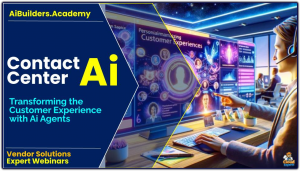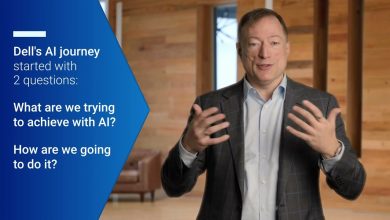Upskill AI Agents with the Model Context Protocol (MCP)
MCP is a universal, open protocol for connecting AI systems with data sources like knowledge bases, business applications, or other AI services.
 Cognigy.AI now integrates with the Model Context Protocol (MCP), allowing AI Agents to easily access external knowledge and actions.
Cognigy.AI now integrates with the Model Context Protocol (MCP), allowing AI Agents to easily access external knowledge and actions.
MCP is a universal, open protocol for connecting AI systems with data sources like knowledge bases, business applications, or other AI services.
On April 17th Cognigy.AI announced its integration with the Model Context Protocol (MCP), an open standard developed by Anthropic in November 2024. This update enhances Cognigy.AI’s platform by enabling its AI agents to seamlessly connect with external data sources, tools, and services, streamlining enterprise AI orchestration.
Here’s a breakdown of the news and its implications:
What is MCP and Cognigy.AI’s Integration?
MCP is a standardized protocol (built on JSON-RPC 2.0) that allows AI models and agents to interact with external systems—like databases, knowledge bases, APIs, or business applications—through a unified, secure interface. It simplifies the complex “M×N integration problem” (where M AI apps connect to N tools) into an “M+N problem,” requiring each tool and app to support MCP only once for interoperability.
Cognigy.AI, a conversational AI platform, has integrated MCP support into its latest update. This allows its AI agents to dynamically access multiple external knowledge bases and tools during a single interaction while preserving conversational context. For example, an agent could query a CRM for customer data, pull documents from a shared drive, or trigger workflows in third-party systems, all within one conversation.
Key Benefits of the Integration
- Seamless Multi-Tool Workflows: MCP enables Cognigy.AI agents to tap into various data sources (e.g., internal knowledge bases, databases) and perform actions (e.g., API calls, workflow triggers) in real time. This makes agents more context-aware and capable of handling complex tasks, like answering, “How many customers do we have in New York?” by querying a customer database directly.
- Modularity and Flexibility: Each MCP server acts as a modular plugin for specific capabilities, such as accessing a particular data source or executing specialized actions. This plug-and-play approach, likened to a “USB-C for AI,” allows enterprises to easily add or swap tools without custom integrations.
- Enhanced Enterprise AI: By standardizing communication between AI agents and external systems, MCP reduces the need for brittle, hard-coded integrations. This makes Cognigy.AI’s platform more scalable and adaptable for businesses, enabling agents to deliver hyper-personalized, context-aware responses.
- Real-Time Data Access: MCP overcomes limitations of static LLM knowledge by enabling on-demand retrieval of up-to-date information. This ensures Cognigy.AI agents can incorporate current data without hitting context length limits or relying on costly prompt-stuffing methods.
Why This Matters
- Industry Adoption: MCP is gaining traction as a foundational standard, with support from major players like OpenAI, Microsoft, Google, and companies like Block and Sourcegraph. Cognigy.AI’s adoption aligns it with this growing ecosystem, positioning it as a leader in agent-driven enterprise AI.
- Simplified Development: Developers can now write a single MCP integration for Cognigy.AI agents, which can be reused across multiple tools and LLMs that support MCP. This reduces development time and costs, making it easier to build sophisticated AI workflows.
- Security Considerations: While MCP simplifies integrations, it introduces potential vulnerabilities (e.g., data exfiltration, prompt injection). Cognigy.AI users must adopt best practices, such as encrypted connections and MCP Inspector for debugging, to ensure secure deployments.
Conclusion
Cognigy.AI’s integration with MCP marks a significant step toward making AI agents more powerful and versatile in enterprise settings. By leveraging MCP’s standardized, modular approach, Cognigy.AI enables its agents to access external knowledge and perform actions seamlessly, reducing integration complexity and enhancing real-time, context-aware interactions.
This move aligns with the broader industry shift toward interoperable AI ecosystems, though enterprises must remain vigilant about securing MCP-driven workflows.



